Our Curriculum
We have recently redesigned our curriculum; we are very proud of our distinctive and creative curriculum which is designed to:
Meet the needs of and engage all learners
Support the children in securing essential skills
Be meaningful, purposeful and ‘real’ – and relevant to our community
Remove barriers to learning especially for those children who are vulnerable or who start at a disadvantage
Support children in becoming highly effective learners – we learn how learning works
Be memorable – learning is more secure when ideas are easy to recall
Support active learning – focussed on learning new skills and ideas rather than filling in worksheets
Be broad, balanced and meaningful
Be inclusive and accessible to all
-
Questions for Learning
Our curriculum is enquiry driven. We start every lesson and every series of lessons with a Question for Learning. This is often in response to questions that the children ask about the world around them and encourages curiosity and engagement. The QfLs are designed with the children’s lived experience in mind, they learn why Hebden Bridge is full of chimneys and why families are different, but all are special. Click here for more information about QfLs.
We work closely with Riverside School to make sure that we can provide a single, joined up curriculum which provides progression from Nursery all the way up to Year 6 at Riverside.
-
Language / vocabulary for learning
Each topic or sequence of lessons includes a sharp focus on vocabulary for that piece of learning. We understand that words are not just used for speaking and writing but for thinking as well. We make sure the children are precise and confident in their use of the right vocabulary in advance, which helps them to articulate and process new ideas. Please visit our English page to find out more VfL..
-
Sparkle
Our curriculum in sprinkled with extra sparkle – a progression of experiences to support children’s learning and engagement throughout their time at Central Street and Riverside. On their journey for example each child will get the chance to meet an owl, to make their own lunch, to visit a university!
Reading & Phonics
To support children’s reading and phonics learning we follow the Little Wandle Letters and Sounds Revised scheme. This is a highly effective approach which our children really enjoy. Our approach includes frequent, structure Guided / Group Reading sessions and Phonics focus at least daily.
The Little Wandle approach uses high quality decodable texts and accessible resources for teaching phonics which are well designed and use humour and consistency to support children’s skills and confidence. We love it because it is designed specifically to reduce cognitive overload while supporting rapid progress in reading. Very quickly our children gain confidence and skills in reading.
At Central Street we know that books are both food and exercise for the brain and so we put time aside every day for sharing and enjoying a book together. We say ‘If in doubt - read’
To find out more about how we teach children to read please follow this link.
How can Parents / Carers find out more about our curriculum?
How we support learners with SEND
Our curriculum is designed to be inclusive and accessible for all learners. Please refer to this information for more details.
At Central Street we take pride in being very inclusive and will endeavour to support every child regardless of their level of need. All children follow the National Curriculum at a level and a pace that is appropriate to their learning need. At times and when it is felt appropriate, modifications to the curriculum may be implemented.
To successfully match children’s learning needs to the curriculum there are some actions we may take:
To give every child the entitlement to a sense of achievement, joy and satisfaction in every aspect of their school experience.
Ensure that all children have access to the school curriculum and all school activities.
Help all children achieve well, despite any difference, difficulty or disability they may have.
Ensure that teaching staff are aware of and sensitive to the needs of all children, teaching children in a way that is more appropriate to their needs.
To work in partnership with parents / carers, children and relevant external agencies in order to provide for children’s special educational needs and disabilities.
To identify at the earliest opportunity, all children that need special consideration to support their individual needs (whether these are educational, social, physical or emotional)
To make suitable provision for children with SEND to fully develop their skills, interests and aptitudes and gain maximum access to the curriculum.
Ensure that all children with SEND are fully included in all activities of the school in order to promote the highest levels of achievement.
To promote self-esteem and enthusiasm by encouraging independence at all age and levels of learning.
To regularly review the policy and practice in order to achieve best practice.
We understand that children learn and develop in different ways. Teachers and teaching assistants recognise this and use different teaching styles, resources and design different learning experiences in the classroom to cater for the various ways children learn. However, many children, at some time in their school life, need extra help.
We offer the following support for children with SEND:
We build relationships with our parents / carers and have open and ongoing conversations about each child’s individual needs. If an additional need or concern becomes apparent, we engage with families to plan an approach which is tailored to the child’s individual needs. Mrs Bright is our Special Educational Needs Co-ordinator (SENCO) and supports families and staff in this process.
Please read our SEND policy to find out more about our provision for children with additional needs. button
Quality first teaching is how we meet the needs of all learners, whatever their starting points. This may involve:
Changing the way activities are planned and delivered
Matching activities to the skills / need of each child (differentiation)
Adapting learning materials such as equipment and activities to suit each child’s needs
Adjusting the layout and organisation of the learning space
Activities to support a child’s social and emotional development
Offer small group support to promote skills identified in the child’s Support Plan
With the permission of parents / carers we may seek additional advice from outside specialists such as health professionals, specialist teachers or educational psychologists who would:
Carry out further assessment of the child’s needs
Provide advice to schools on how to best support the child
Suggest resources that would help the child make progress
Our teachers / teaching assistants work in partnership with parents / carers and the SENCO to find ways to support each child with their needs, including sharing with parents / carers ideas and strategies on how to support their child at home.
Please refer to our SEN policy to find out more about the stages of SEN provision and the different approaches we use to meet children’s needs.
RSE
Relationships Education (Relationships and Sex Education in KS2) is learnt in a progression of lessons from Reception to Year 2 at Stubbings and into KS2 at Riverside. We have a single RSE approach / curriculum to make sure that our children encounter this learning in the right order at the right time.
We use the Christopher Winters scheme to support this learning which is recommended by the PSHE Association who say “We awarded the Christopher Winter Project’s ‘Teaching SRE with confidence in Primary Schools’ our quality mark as it achieves exactly what it says on the tin: it provides everything a Primary practitioner would need to be confident that the SRE they’re providing is comprehensive, balanced, developmental and in line with best practice in PSHE teaching and learning. The lessons incorporate a wide variety of learning activities and a range of assessment opportunities. The teacher’s guide is thorough and supportive.”
Please follow this link to find out more about our SRE Policy and resources.
Learning at Home
Our curriculum is designed to be uninterrupted by lockdowns and self-isolation! If children are at home but well enough to learn we provide engaging activities and materials to make sure no one gets left behind.
Please follow this link to find out more about our approach to remote learning.















